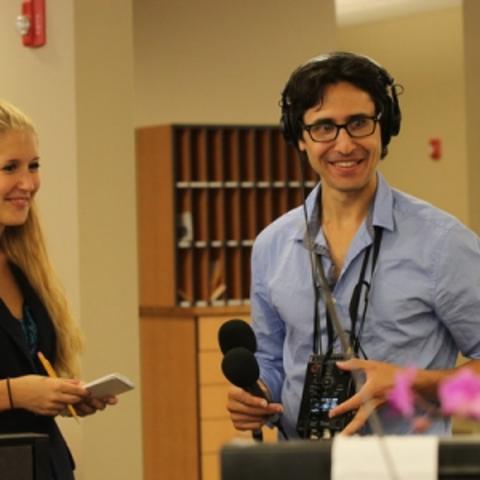Section Branding
Header Content
On Second Thought For Monday, October 23, 2017
Primary Content
Jameka Evans, Rhiannon Giddens, Ameer Mohammed, Darktown
This year a federal court in Chicago ruled for the first time that workers can’t be fired based on sexual orientation, extending workplace protections in the Civil Rights Act of 1964 to the LGBT community. Yet, a Georgia judge ruled against a similar case. Now that case is up for appeal to the U.S. Supreme Court. Jameka Evans claims Georgia Regional Hospital in Savannah fired her for being a lesbian. Earlier this month, 18 state attorneys general filed briefs in support of Evans's petition. We talk to her attorney Greg Nevins, and Andrea Young, Director of the American Civil Liberties Union of Georgia.
This month, North Carolina-based singer/songwriter Rhiannon Giddens was announced as a MacArthur Foundation Fellow, better known as a “Genius Grant.” That comes with a $625,000 cash prize. You may know Giddens as the voice of the string band, the Carolina Chocolate Drops. Rhiannon Giddens’ second solo album, "Freedom Highway," came out in February. We re-visit our conversation with her before an Atlanta performance earlier this year.
Earlier this month, Vice President Mike Pence left an Indianapolis Colts game to protest players kneeling during the National Anthem. It’s something athletes across the country, including Atlanta, are doing on the field to protest police violence against African-Americans. Ameer Mohammed of Atlanta says he wants his own experiences with police to be a learning experience for his children. GPB News intern Maya Martin brings us a conversation between Ameer and his 14-year-old son Faheem.
In the Jim Crow South, black and white neighborhoods were separated by law. Some police departments added African-American officers to their squads to cover the black communities. Atlanta hired eight men in 1948. But their authority was greatly restricted. These officers inspired Thomas Mullen’s novel “Darktown,” and a sequel from this year, “Lightning Men.” We catch up with Thomas Mullen.




